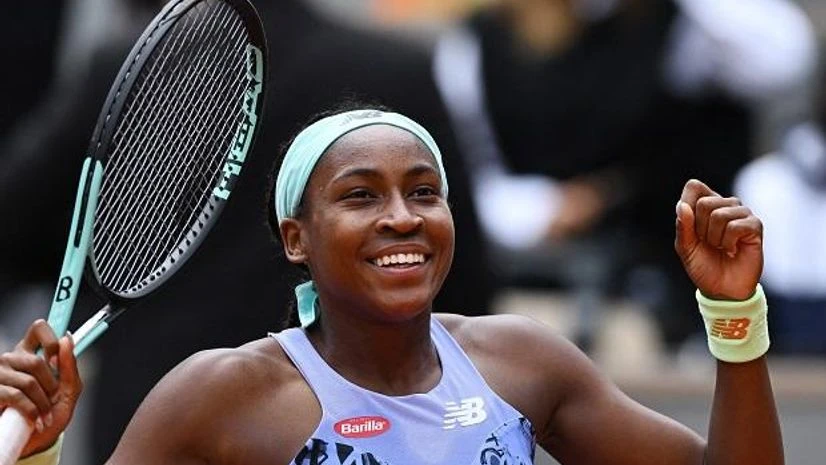)
Coco Gauff of the US celebrates after winning a match at the French Open tennis tournament in Roland Garros stadium in Paris (Photo: Reuters)
Caroline Garcia, a U.S. Open semifinalist two years ago, drew attention Wednesday to the ever-present problem of cyberbullying in tennis, particularly by people who bet on matches, after her first-round loss at the Grand Slam tournament.
Garcia, a 30-year-old from France who has been ranked as high as No. 4, was seeded 28th at Flushing Meadows but was eliminated by Renata Zaraza 6-1, 6-4 on Tuesday. Zaraza is ranked 92nd and is making her U.S. Open debut.
Garcia offered examples of just a few of the hundreds of messages she said she was sent after losing recent matches, including one telling her she should consider suicide and another that read, I hope your mom dies soon.”
At the end of the day, I’m just a normal girl working really hard and trying my best, I have tools and have done work to protect myself from this hate. But still, this is not OK,” Garcia wrote. “It really worries me when I think about younger players coming up, that have to go through this. People that still haven’t yet developed fully as a human and that really might be affected by this hate.
As other players have mentioned in the past, she talked about the issue of being attacked verbally by gamblers upset about losing money.
Tournaments and the sport keeps partnering with betting companies, which keep attracting new people to unhealthy betting, Garcia said. The days of cigarette brands sponsoring sports are long gone. Yet, here we are promoting betting companies, which actively destroy the life of some people.
This sort of harassment via social media is nothing new, of course, and it’s not new to tennis.
You hear a lot of nasty things, and people talk about your appearance, your family’s appearance, and all these things, Gauff said. If you are already struggling with your own mental issues and, on top of that, you have people digging deeper, it is tough.
As Frances Tiafoe, a semifinalist in New York in 2022, said: People are saying outlandish … stuff. It’s just wild.
I try not to look at the comments, 2019 U.S. Open champion Bianca Andreescu said, mentioning that she will ask her PR person to scroll through and let her know when there are positive ones. Because there’s always going to be a negative comment and I’ve learned that the hard way.
Players have called it out in the past, and Grand Slam tournaments have been trying to help prevent messages from reaching the athletes.
The French Open partnered in 2022 with a company that uses artificial intelligence to filter players’ social media accounts, and the groups that run the U.S. Open, Wimbledon, the women’s tour and the lower-level ITF Tour announced in December they were starting a service to monitor for abusive and threatening content on X, Instagram, YouTube, Facebook and TikTok.
Many before me have raised the subject, Garcia said. And still, no progress has been made. Social media platforms don’t prevent it, despite AI being in a very advanced position.
She closed her message by addressing anyone reading it, suggesting that “next time you see a post from an athlete, singer or any other person, that has failed or lost, you will remember that she or he is also a human being, trying his best in life. Be kind. Give love. Enjoy life.
(Only the headline and picture of this report may have been reworked by the Business Standard staff; the rest of the content is auto-generated from a syndicated feed.)
First Published: Aug 29 2024 | 3:32 PM IST

































